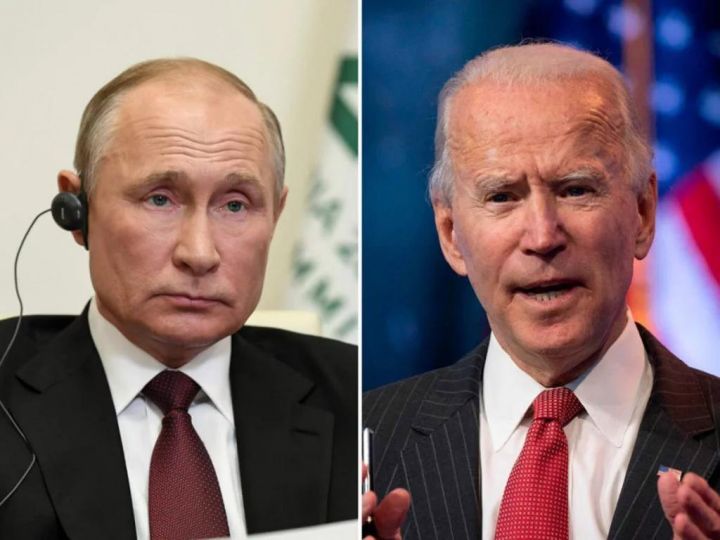US President Joe Biden has threatened to impose devastating sanctions on Russia if leader Vladimir Putin invades Ukraine, but some big companies and business groups are pushing the White House and lawmakers to be cautious.

A trade group representing Chevron, General Electric and other big US corporations that do business in Russia is asking the White House to consider allowing companies to fulfill commitments and to weigh exempting products as it crafts any sanctions. At the same time, big energy companies are pushing Congress to limit their scope and time frame.
The Biden administration and Congress need to “get the details right in case they must follow through on the threat of sanctions,” Jake Colvin, president of The National Foreign Trade Council, told Reuters Monday.
“Those details should include consideration of safe harbors or wind-down periods to enable companies to fulfill existing contracts and obligations, as well as carve-outs for lifesaving medicines and other humanitarian considerations consistent with longstanding US policy,” Colvin said.
Energy companies have also reached out directly to US lawmakers to press for a “cool down” or “wind down” period so their assets are not seized if they are unable to fulfill business agreements in Russia, a congressional aide told Reuters.
The American Petroleum Institute, the largest US lobbying organization for oil and gas drillers, has discussed sanctions on Russia with congressional offices.
Export sanctions are typically phased in, giving companies time to wind down their existing business, or ensure delivery arrivals, said William Reinsch, a former senior US Commerce Department official.
But in this case, the sanctions are likely to be applied suddenly, in the middle of a crisis, making a “wind down” period more difficult to secure, he said.
The US Treasury in the past has provided some mitigation measures on financial sanctions, such as granting licenses protecting senders of humanitarian aid and personal remittance flows to Afghanistan despite sanctions against Taliban.
A US Treasury official declined to comment on any such measures regarding potential sanctions against Russia, but added: “We are prepared to deliver severe costs to the Russian economy while minimizing unwanted spillover.”
Oil companies felt the aftermath of the US sanctions on some of Russia’s more expensive drilling operations for years after Putin invaded Crimea in 2014.
The measures forced Exxon Mobil out of Russia’s Arctic and ended the company’s collaboration with Russian state oil company Rosneft, with which it signed a $3.2 billion deal in 2011 to develop the region.
Exxon’s argued the sanctions, which slowed work on a major discovery in the Kara Sea above the Arctic Circle.
Russia threatens to send more arms to separatists in Ukraine
Russia suggested it could send “certain weapons” to the separatists it backs in Ukraine’s Donbas region, signaling a potential escalation in the tensions with the West.
The proposal came from Andrey Turchak, a top official of the pro-Kremlin ruling party who’s also a senior member of the Senate, though there was no immediate public comment from the government. Russia has backed the separatists since the conflict first broke out in 2014 but denies Ukrainian and Western allegations it provides military support.
Support InfoStride News' Credible Journalism: Only credible journalism can guarantee a fair, accountable and transparent society, including democracy and government. It involves a lot of efforts and money. We need your support. Click here to Donate
